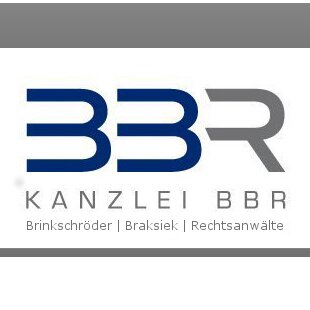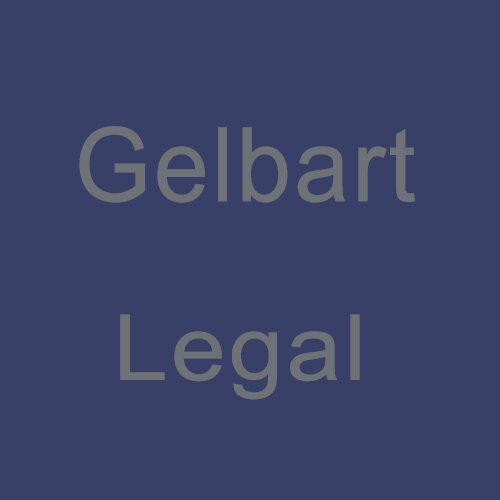Best New Business Formation Lawyers in Germany
Share your needs with us, get contacted by law firms.
Free. Takes 2 min.
Or refine your search by selecting a city:
List of the best lawyers in Germany
About New Business Formation Law in Germany
New business formation in Germany is a structured process governed by both federal and local laws designed to ensure that businesses operate legally and efficiently. The process involves choosing the right legal form for the business, registering with the relevant authorities, and complying with various regulations. Germany is known for its strong legal framework, which provides clarity and supports entrepreneurship while emphasizing rigorous compliance and documentation.
Why You May Need a Lawyer
Starting a new business in Germany can be legally complex, with numerous regulations and requirements to navigate. Here are some common situations where legal help may be necessary:
- Determining the most suitable business structure: Legal advice can help you decide whether to form a sole proprietorship, partnership, limited liability company (GmbH), or another entity.
- Understanding tax obligations: Taxation laws in Germany can be intricate, and legal assistance can ensure compliance and optimization.
- Drafting and reviewing contracts: Lawyers can assist with drafting bylaws, partnership agreements, and other crucial documents.
- Regulatory compliance: Legal counsel can help you navigate sector-specific regulations, including licenses and permits.
- Dispute resolution: Lawyers can aid in resolving disputes with partners, clients, or vendors efficiently and legally.
Local Laws Overview
The process of business formation in Germany is subject to several important local laws, including:
- Commercial Code (Handelsgesetzbuch): Governs trading practices, bookkeeping, and operations of business entities.
- Taxation Laws: Defines corporate taxes, VAT, and various tax incentives that businesses may qualify for.
- Employment Law: Sets forth the requirements for employment contracts, employee rights, and workplace obligations.
- Intellectual Property Laws: Provide protection for trademarks, patents, and copyrights, which is crucial for safeguarding your brand.
- Company Law (Gesetz betreffend die Gesellschaften mit beschränkter Haftung): Establishes guidelines for forming and operating limited liability companies.
Frequently Asked Questions
What types of business entities can be formed in Germany?
In Germany, common business entities include sole proprietorships, general partnerships, limited partnerships, limited liability companies (GmbH), and corporations (AG).
How do I register a new business in Germany?
Registration involves applying for a business license (Gewerbeanmeldung) at the local trade office (Gewerbeamt) and registering with the Commercial Register (Handelsregister).
What is the minimum capital required to form a GmbH?
The minimum capital required to form a GmbH is €25,000, with at least half of that amount present in the company's bank account at registration.
Do I need to be a resident to start a business in Germany?
No, non-residents can establish a business in Germany, but they must comply with Germany's visa and work permit regulations.
What are the key employment laws to consider?
Employment laws in Germany include regulations on contracts, minimum wages, work hours, health and safety, and employee benefits.
How can I protect my business idea?
Register your trademark, patent, or copyright with the German Patent and Trademark Office (DPMA) to protect your intellectual property.
What are the tax obligations for a new business?
Your business must pay corporate taxes, trade taxes, and VAT, among others. It is advisable to consult with a tax advisor for compliance.
How long does it take to start a business in Germany?
The process can take a few weeks to a few months depending on the business type, legal form, and the completeness of the documentation submitted.
Can I operate a business from home?
Yes, but you need to ensure your business adheres to zoning regulations and other relevant laws for home business operations.
What are some incentives for startups in Germany?
Germany offers various grants, loans, and subsidies for startups, as well as innovation support through multiple regional and national programs.
Additional Resources
- Federal Ministry for Economic Affairs and Energy (BMWi): Provides support and information for startups and small businesses.
- German Chamber of Commerce and Industry (DIHK): Offers consulting services and support for business founders.
- German Patent and Trademark Office (DPMA): Essential for intellectual property registration and protection.
- Local Gewerbeamt (Trade Office): Responsible for business registrations in your area.
Next Steps
If you need legal assistance in new business formation in Germany, consider the following steps:
- Consult with a legal expert specializing in business formation to discuss your unique needs and goals.
- Gather required documentation including identification, proof of capital (if needed), and a clear business plan.
- Engage with a tax advisor to understand the implications and benefits that apply to your business model.
- Schedule an appointment with your local Gewerbeamt for your business registration.
- Explore local business networks for mentorship opportunities and support.
Lawzana helps you find the best lawyers and law firms in Germany through a curated and pre-screened list of qualified legal professionals. Our platform offers rankings and detailed profiles of attorneys and law firms, allowing you to compare based on practice areas, including New Business Formation, experience, and client feedback.
Each profile includes a description of the firm's areas of practice, client reviews, team members and partners, year of establishment, spoken languages, office locations, contact information, social media presence, and any published articles or resources. Most firms on our platform speak English and are experienced in both local and international legal matters.
Get a quote from top-rated law firms in Germany — quickly, securely, and without unnecessary hassle.
Disclaimer:
The information provided on this page is for general informational purposes only and does not constitute legal advice. While we strive to ensure the accuracy and relevance of the content, legal information may change over time, and interpretations of the law can vary. You should always consult with a qualified legal professional for advice specific to your situation.
We disclaim all liability for actions taken or not taken based on the content of this page. If you believe any information is incorrect or outdated, please contact us, and we will review and update it where appropriate.
Browse new business formation law firms by city in Germany
Refine your search by selecting a city.
















